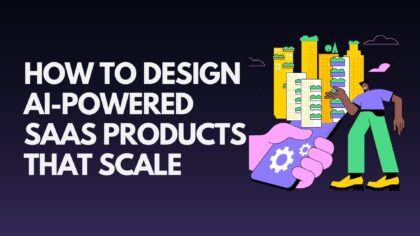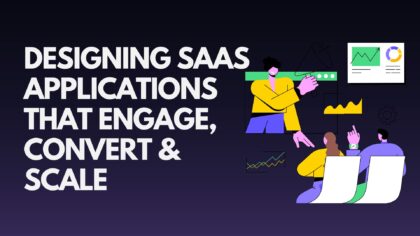Want to attract and convert more people without Facebook ads? Looking for tips to develop an organic Facebook funnel?
In this article, you’ll learn how to model an effective sales funnel with organic Facebook content.
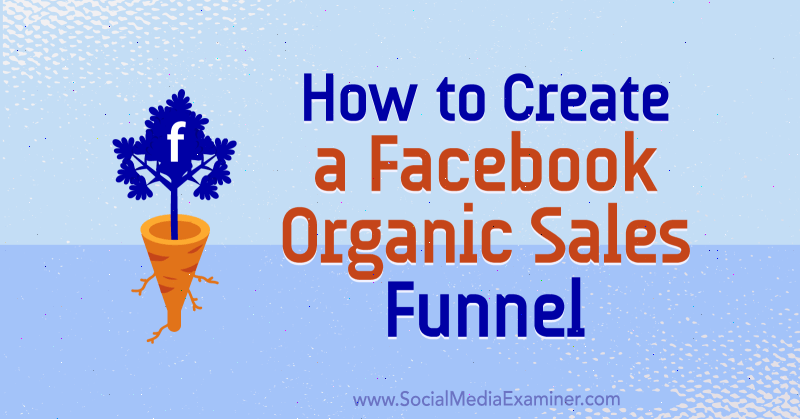
#1: Leverage Existing Facebook Audience Engagement to Create Awareness With New Prospects
Back in the good old days when organic reach of Facebook posts was still very high, you could more or less count on your Facebook audience seeing your organic posts in their news feeds.
When Facebook overhauled organic reach, limiting the reach of our organic posts to our audience, it had a beneficial effect: Now you can have more confidence that a page like or follow comes from someone with a genuine interest in your business. And while you may not reach 100% of your Facebook audience with every organic post, your following is a more reliable source of potential prospects that you can count on.
With the right organic Facebook content, you’ll continually add new followers to your audience via shares and other audience engagement on organic posts. This, combined with the rate at which your posts are seen by your current followers, means that each new post you use to drive traffic through your funnel could potentially reach new faces.
For businesses that have cracked the code and found success in acquiring an audience but don’t have the budget for Facebook ads, converting that audience can be a struggle. What good is a Facebook fanbase if it never leads to a sale?
That’s where an organic sales funnel comes into play. What this sales funnel looks like will vary by business, but typically, the steps taken along the path to conversion are similar to this:
- Step 1: Awareness
- Step 2: Interest
- Step 3: Evaluation
- Step 4: Decision and action/conversion
Sales funnels often rely on ads, but when fueled by organic content designed to convert an existing Facebook audience, a sales funnel could look something like this:
- Awareness: A person likes or follows your Facebook page.
- Interest: They see and click on an organic Facebook post for a service you provide.
- Evaluation: They arrive at a landing page on your website populated with a few testimonials and bullet points listing the perks of using that service. The page also includes a form to request a quote.
- Decision and action: They fill in the form, see the estimate, and book the service.
The idea is to create organic content to create as much awareness of your Facebook page as possible, thereby filling the funnel and giving you the best chance at the maximum number of conversions on the other side.
Whether the sales funnel concept is new to you or you’ve had one in place without realizing it, it will benefit your business to put some attention toward refining it into a sales-driving machine. And if you have a strong Facebook following or are working toward creating one, you already have the ideal resource from which to draw sales prospects.
#2: Create Organic Facebook Content to Nurture Prospects Through Interest and Evaluation
We’ve established that the top of this sales funnel is composed of your Facebook fanbase. So how do you get those who follow you on Facebook to continue along the path of your sales funnel? Essentially, you need to give your followers a compelling reason to leave Facebook, and ideally, take additional action.
One way to cut through the noise is to run Facebook ads. However, if you don’t have the budget or faith that ads will work for your business, don’t fret. Building a sales funnel without ads can still be effective and a great jumping-off point to test the conversion of different posts before investing in ads.
Here are some examples of the types of posts that can drive traffic off of Facebook to your middle funnel.
In this post, Zappos draws attention to a new line of products and includes a link that leads to more information.
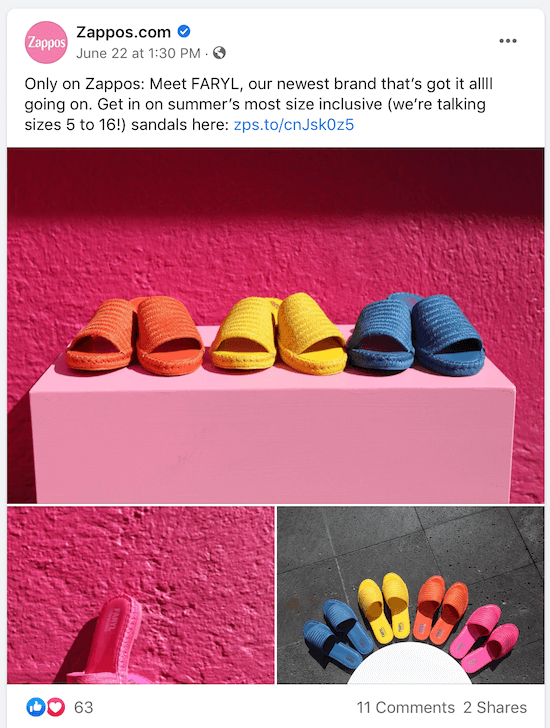
If Facebook users click on the provided link in the post, it takes them to a landing page that includes a call to action (CTA) to make a purchase.
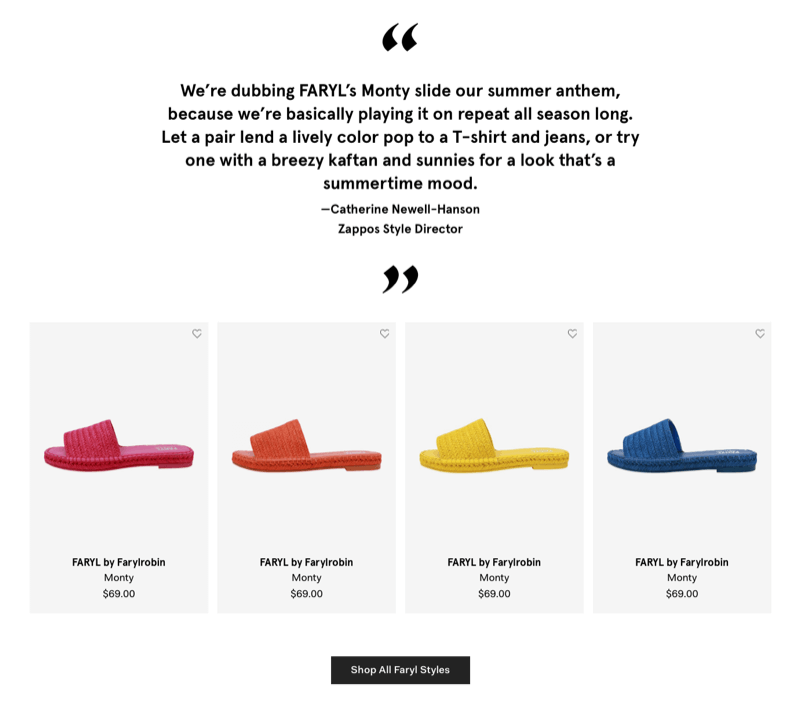
As another example, this Facebook post offers a showcase of menu items in next week’s HelloFresh shipment.
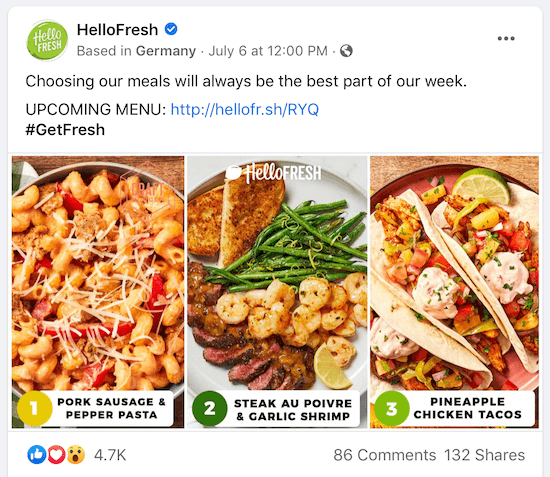
The CTA here isn’t to subscribe to HelloFresh but rather to entice viewers with what they could be having for dinner. As a bonus, an offer is displayed on the page.
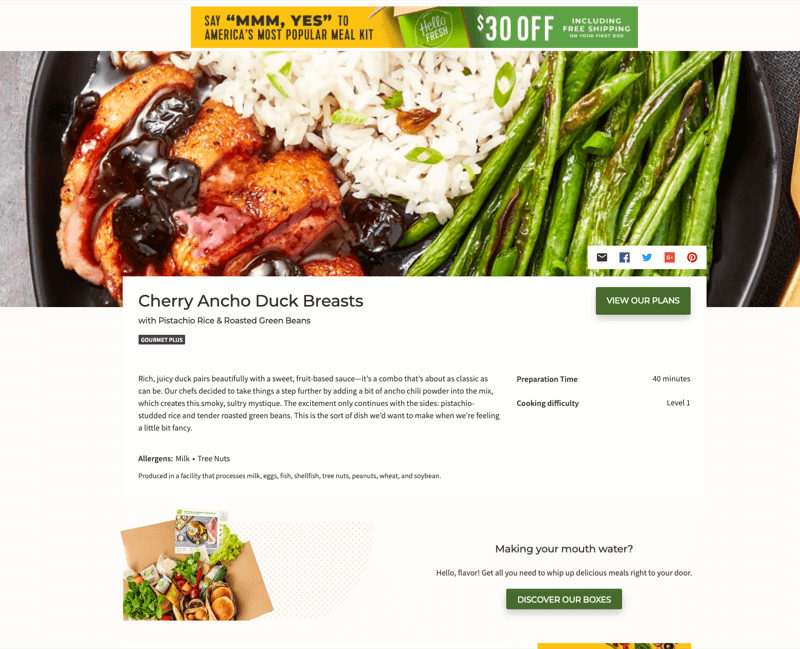
4 Types of Organic Middle-of-Funnel Content to Model
You may be wondering, “Why not just direct Facebook fans straight from a post to my online store?” Because, as one might say on a first date, “You’re moving too fast.”
Nurtured leads typically make significantly larger purchases than non-nurtured leads. So don’t be so quick to take traffic from the top to the bottom of the funnel. Use middle-of-funnel strategies to cultivate prospects, priming them for the next stage of your funnel.
In a traditional sales funnel, where marketing efforts are like the net that fills the top of the funnel, the middle of the funnel is where sales show up to the party. This can be in the form of a landing page filled with testimonials, persuasive bullet points, and catchy taglines.
Here are some ideas for Facebook link posts in the middle of the funnel:
- Link to a basic sales page with info and a CTA: This is great for selling a specific product or service. The CTA can link to a subscription form or a shopping cart.
- Link to a quiz: Gauge the knowledge level of a prospect by having them answer a series of questions. To illustrate, an HVAC company may ask a few questions about the danger of dirty ducts. A low score could prompt a sales call or a “Request a Quote” form.
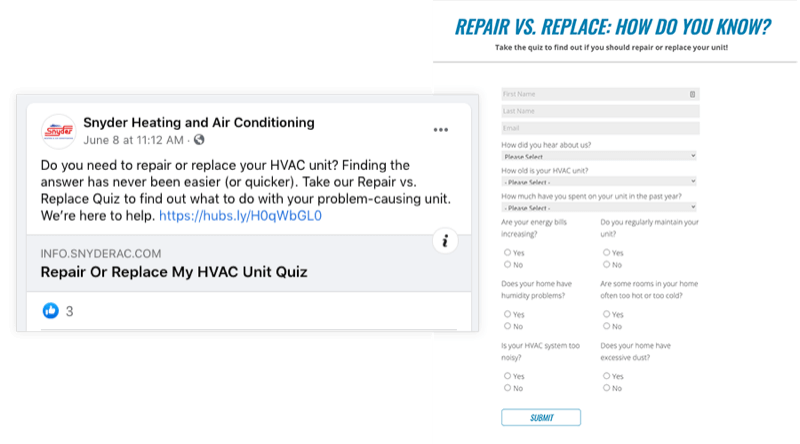
- Link to a contest or giveaway: Although contests and giveaways may not be the best sales tools in and of themselves, they’re ideal for attracting and engaging online traffic. Hosting a contest or giveaway is the perfect hook for driving traffic off of Facebook and to your entry form. With the collected entries, you’ll have leads to add to your email list to use for further marketing.
- Link to a blog post, guide, or resource: For certain businesses, free content is the perfect gateway to selling better content. Consultants and other experts can drop a few bits of free advice in a blog post or guide with a primer to subscribe, purchase, or hire their services for the valuable expertise.
#3: Analyze Organic Facebook Content and Landing Page Performance to Optimize for Conversion
The bottom of your funnel is decision-making time. It’s that crucial moment where your Facebook follower could become a paying customer or patron of your business.
This part of the funnel is largely based on the work the top and middle of the funnel did to get them to this stage, but there are still measures you can take to make sure you don’t lose momentum when the prospect is faced with the decision to convert.
If the bottom of your funnel includes an entry form, whether it’s to make a purchase or schedule an appointment, make sure the form includes the minimum number of fields needed. A lengthy entry form is an absolute conversion killer.
There are additional strategies you can implement at the bottom of the funnel to nudge those visitors to customer status. To visualize this, if you’re a shoe retailer, when a consumer adds a pair of shoes to their shopping cart, you could display a discount code offering half off the purchase of a second pair.
To understand the customer conversion process and bring to light any problem areas that might be causing prospects to drop off along the way, it’s essential to consistently analyze the performance of your organic Facebook content and the sales funnel landing pages.
As the chief evangelist of what you do, it’s clear to you why your business should be the number-one choice for shoppers but relaying that sentiment to potential customers can be a challenge. Worse yet, you may not even be aware that parts of your sales pitch aren’t sinking in.
Taking a magnifying glass to your funnel will help reveal its weak spots, especially if you’re familiar with the benchmark behaviors of those passing through your sales process.
For instance, note the number of clicks each Facebook post is getting in relation to the clicks on your CTA. If you were to add a short video to the landing page showing your service technicians in action or happy customers’ testimonials, does anything happen to your conversion rate? Do CTA clicks go up or down?
Or maybe you need to make some tweaks to your appointment scheduling form. If you make it shorter, do conversions go up? If so, you know that your entry form was causing more prospects to drop off.
Changes like this can help you understand the impact of your landing page on the conversion process and areas where you can improve it.
Pro Tip: As prospects drop off of your funnel, there’s always an opportunity to re-engage them. If you were able to capture an email address along the way, make sure to follow up with email marketing. Keep prospects aware of upcoming promotions, send discount codes, and announce new products.
If the visitor ends up abandoning the sale, make sure to trigger an abandoned-cart email—10.7% of abandoned carts can be recovered through a follow-up email.
The beauty of a Facebook audience is that it will always be there for you to call on. Continue to post on Facebook with the intention of driving traffic through your conversion funnel.
Conclusion
A sales funnel is an effective way to drive traffic from the stage at which prospects become aware of your business to the stage at which they decide to purchase. Developing and fine-tuning a sales funnel helps you understand the parts of your sales process that cost you conversions.
Your Facebook audience is primed and perfectly positioned to start the journey along a sales funnel because they have a genuine interest in your business. Use posts with incentives and CTAs to drive traffic off of Facebook and into the next stage of your funnel. That next stage could include content such as a landing page with a sign-up form, blog post, guide or eHow book, giveaway, quiz, or contest.
Make sure to keep a watchful eye on clicks and bounce rates so you know where your sales funnel needs to be tweaked to continually boost conversions.
For those who don’t convert, keep the conversation going. Continuously engage your Facebook audience, leveraging the resource you’ve put so much work into cultivating.
What do you think? How do you attract and convert people with organic Facebook content? Share your thoughts in the comments below.
More articles on Facebook marketing:
- Discover how to promote short-term sales with organic posts and paid ads on Facebook.
- Learn how to solve four common Facebook marketing problems.
- Find five effective tips to increase the chances your Facebook leads will become customers.
Post credit: https://www.socialmediaexaminer.com/how-to-create-facebook-organic-sales-funnel/
